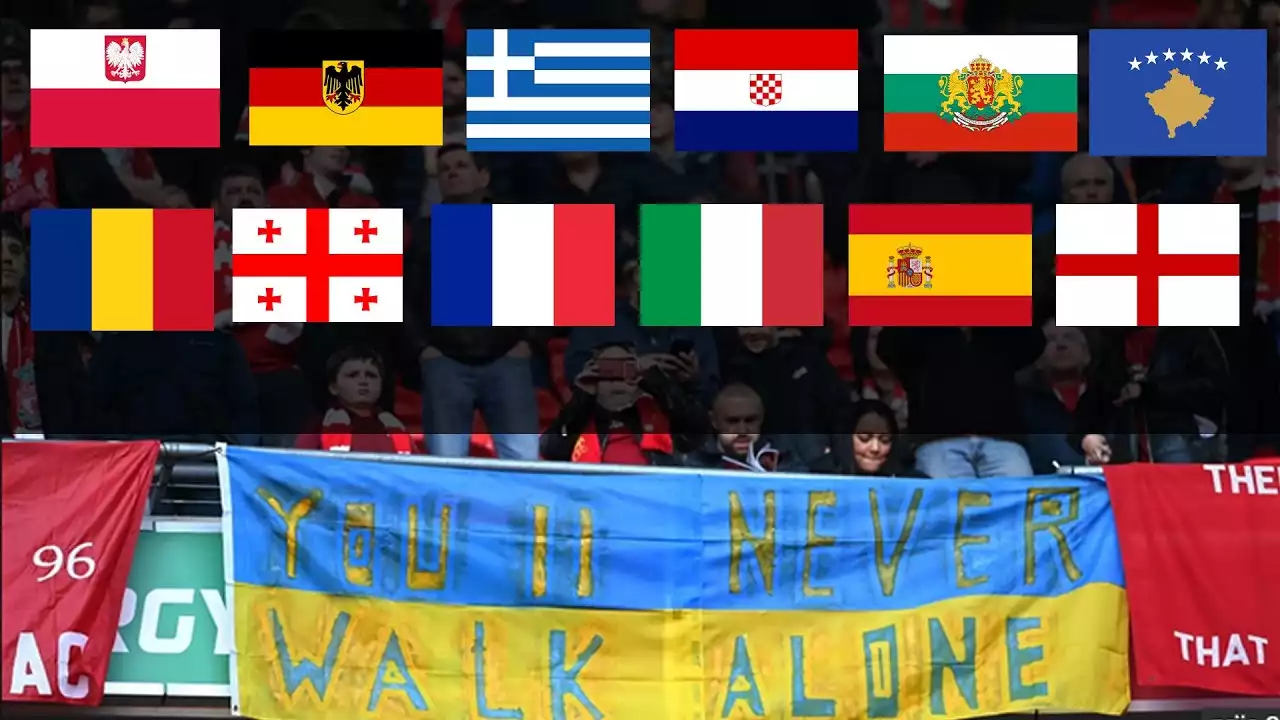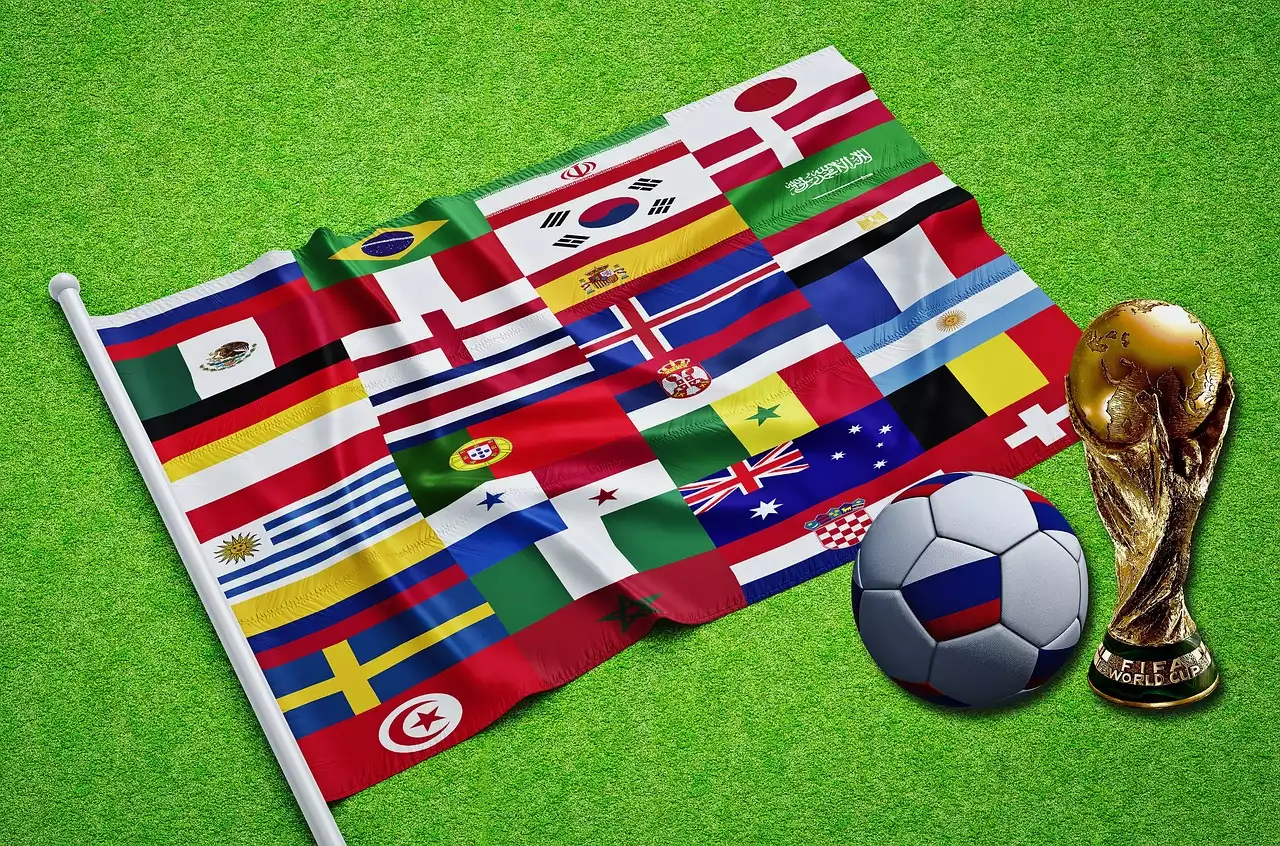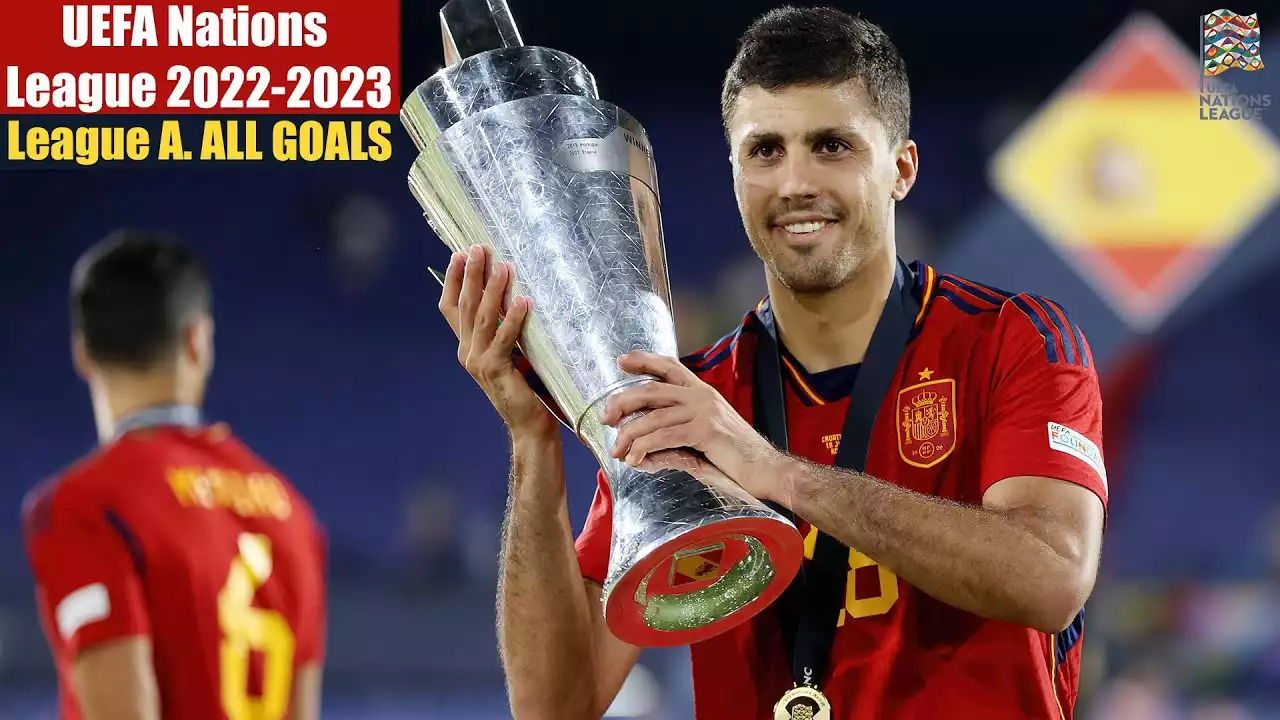Understanding the format of the Nations League
The Nations League, introduced by UEFA in 2018, is a biennial international football competition that aims to replace the traditional system of international friendlies with a more competitive format. The tournament is divided into four leagues (A, B, C, and D) based on the UEFA National Team Coefficient rankings. Each league is further divided into groups, with teams playing against each other in a round-robin format. The winners of each group in League A qualify for the Nations League Finals, while the last-placed teams are relegated to a lower league. This format ensures that smaller countries have the opportunity to compete against teams of similar strength, increasing their chances of success and development.
The Nations League also serves as a pathway for teams to qualify for major tournaments, such as the UEFA European Championship. The top-ranked teams in each group that have not already secured a spot in the European Championship through the traditional qualifying process are awarded a playoff spot. This means that smaller countries who may not have had a realistic chance of qualifying through the traditional route now have a genuine shot at participating in major tournaments, further raising their profile and inspiring young players.
The promotion and relegation system in the Nations League also provides smaller countries with an incentive to improve their performance and strive for success. By competing against teams of similar caliber, these nations can measure their progress and work towards climbing up the ranks. This not only boosts the competitiveness of the tournament but also encourages smaller countries to invest in their football infrastructure and development programs to ensure long-term success.
The benefits of the Nations League for smaller European countries
The introduction of the Nations League has brought about several benefits for smaller European countries. Firstly, it provides these nations with more competitive and meaningful matches, as opposed to traditional friendlies that often lack intensity and significance. The opportunity to face similarly-ranked opponents allows smaller countries to showcase their skills, gain experience, and improve as teams. This exposure to higher-caliber competition is invaluable in the development of players and the overall growth of football in these nations.
Secondly, the Nations League offers smaller countries a realistic chance of qualifying for major tournaments. In the past, these nations were often overshadowed by more prominent footballing nations and struggled to secure a place in prestigious competitions. However, with the increased number of qualifying spots available through the Nations League, smaller countries now have a genuine opportunity to compete on the international stage. This has not only boosted the morale and confidence of players and fans but has also attracted more attention and investment into football infrastructure and grassroots development.
Another significant benefit of the Nations League for smaller countries is the exposure it provides to lesser-known players. In traditional friendlies, managers often prioritize fielding their star players, resulting in limited opportunities for emerging talents. However, in the Nations League, where the focus is on competitiveness and development, managers have more freedom to experiment and give opportunities to young and upcoming players. This exposure not only benefits the individual players but also strengthens the overall depth and talent pool of smaller nations, making them more competitive in the long run.
Increased opportunities for smaller countries to qualify for major tournaments
One of the most significant impacts of the Nations League on smaller European countries is the increased opportunities it provides for these nations to qualify for major tournaments. Historically, smaller countries have found it challenging to compete against more established footballing nations in traditional qualification campaigns. However, the introduction of the Nations League has changed the landscape and leveled the playing field.
In the traditional qualifying process, smaller countries often faced powerhouses in their respective groups, making it difficult to secure one of the limited qualifying spots. The Nations League, on the other hand, offers a unique pathway for teams to earn a place in major tournaments. The top-ranked teams in each group of the Nations League that have not already qualified through the traditional route are awarded a playoff spot, providing them with another chance to secure their place in the competition. This means that even if a smaller country finishes low in their traditional qualifying group, they still have an opportunity to qualify for the tournament through the playoffs.
This new qualification system not only increases the chances of smaller countries participating in major tournaments, but it also adds excitement and drama to the tournament. The playoffs feature one-off matches, often in a neutral venue, where the stakes are high and the pressure is intense. Smaller countries now have the opportunity to compete against teams of similar strength in these high-stakes matches, providing a thrilling spectacle for fans and raising the profile of the tournament as a whole.
Boosting the development and exposure of lesser-known players
The Nations League has not only provided smaller European countries with increased opportunities to qualify for major tournaments but has also played a significant role in boosting the development and exposure of lesser-known players. In traditional friendlies, managers often prioritize fielding their star players, resulting in limited opportunities for emerging talents. However, the competitive nature of the Nations League has encouraged managers to experiment and give opportunities to young and upcoming players.
This increased exposure to international football at a higher level has proven to be invaluable in the development of players from smaller countries. Emerging talents now have the chance to test their skills against similarly-ranked opponents, gaining valuable experience and improving their game. Furthermore, the pressure and intensity of the Nations League matches provide a unique learning opportunity for these players, enabling them to grow both as individuals and as part of a team.
The exposure gained through the Nations League also opens doors for these lesser-known players to secure contracts with clubs from more prominent footballing nations. Scouts and managers from top-tier clubs often closely monitor international tournaments, looking for hidden gems and talents that may have gone unnoticed. The performances of players from smaller countries in the Nations League can attract attention and lead to opportunities for them to play at a higher level, further enhancing their development and providing inspiration for aspiring young players back home.
Financial implications of the Nations League for smaller countries
The Nations League has also brought about significant financial implications for smaller European countries. In the past, smaller nations often struggled to generate revenue through international friendlies, which were often poorly attended and lacked commercial appeal. However, the competitive nature of the Nations League has attracted more interest from fans and sponsors, resulting in increased revenue streams for these countries.
The Nations League provides smaller countries with the opportunity to host matches against similarly-ranked opponents, creating a sense of excitement and anticipation among fans. This increased interest translates into higher attendance at matches, boosting ticket sales and matchday revenue. The higher level of competition also attracts more media coverage, both domestically and internationally, leading to higher television and broadcasting rights deals. These financial benefits help smaller countries invest in their football infrastructure, grassroots development programs, and player development, ultimately improving the overall quality of football in these nations.
Furthermore, the increased exposure gained through the Nations League can attract more sponsorship deals for smaller countries. As these nations continue to perform well and gain recognition on the international stage, sponsors are more likely to see the value in associating their brand with the success and potential of these lesser-known teams. Increased sponsorship revenue allows smaller countries to further invest in their football programs and support the growth and development of the sport within their borders.
However, it's important to note that the financial implications of the Nations League are not without challenges. Smaller countries may struggle to compete with the financial resources of more established footballing nations, which could limit their ability to attract top-tier sponsors or invest heavily in player development. Nevertheless, the increased revenue opportunities provided by the Nations League have undoubtedly improved the financial stability and sustainability of smaller countries in the world of football.
Challenges and drawbacks of the Nations League for smaller countries
While the Nations League has brought about numerous benefits for smaller European countries, there are also certain challenges and drawbacks that these nations face within the competition. One such challenge is the increased level of competition that smaller countries now face in the Nations League. While this provides an opportunity for growth and development, it also means that these nations must constantly strive to improve to remain competitive.
Smaller countries often have limited resources, both in terms of player talent and financial capabilities. This puts them at a disadvantage when competing against more established footballing nations in the Nations League. The smaller talent pool means that these nations must rely heavily on a core group of players, making it challenging to maintain consistency and depth throughout the competition. Additionally, the financial limitations of smaller countries may prevent them from investing in the same level of infrastructure, player development programs, and coaching staff as their more prominent counterparts.
Another drawback of the Nations League for smaller countries is the increased physical and mental strain on players. The competitive nature of the tournament means that smaller countries often face a packed schedule of matches against strong opponents. This can lead to fatigue, injuries, and a higher risk of player burnout, especially for nations with limited player depth. Balancing the demands of the Nations League with domestic league commitments can be particularly challenging for smaller countries, as they often have fewer resources to rotate and rest their players effectively.
Additionally, the Nations League may also pose a challenge in terms of player availability. Smaller countries often rely on players who compete for clubs in more prominent footballing nations. These players may face club vs. country conflicts, with their clubs potentially prioritizing domestic or continental competitions over international duty. This can result in smaller countries not having their strongest squad available for Nations League matches, which may adversely affect their performance and chances of success.
Success stories of smaller countries in the Nations League
Despite the challenges and drawbacks, the Nations League has seen several success stories from smaller European countries. These nations have defied the odds and made a name for themselves on the international stage, proving that football glory is not reserved solely for the traditional powerhouses. One such success story is that of Iceland.
Iceland, with a population of approximately 350,000, became the smallest nation to qualify for the UEFA European Championship in 2016. This achievement was built on their success in the inaugural edition of the Nations League, where they won their group in League A and secured a playoff spot for the European Championship. Iceland's performance in the Nations League not only showcased their talent and determination but also inspired a generation of young players in the country.
Another success story is that of Kosovo, a nation that gained UEFA membership in 2016. Kosovo's participation in the Nations League has been instrumental in their rapid rise in international football. Despite being ranked as one of the lowest teams in League D, Kosovo won their group in the 2018-2019 edition, securing promotion to League C. This success provided Kosovo with the confidence and momentum to perform well in the traditional qualifying campaign for the UEFA European Championship, ultimately securing their place in the tournament.
These success stories highlight the transformative impact of the Nations League on smaller countries. By providing them with a platform to compete against similarly-ranked opponents, these nations have been able to showcase their talent, gain experience, and ultimately qualify for major tournaments. The Nations League has shattered the perception that football glory is only reserved for the traditional powerhouses, inspiring smaller countries to dream big and achieve the seemingly impossible.
Strategies for smaller countries to maximize their performance in the Nations League
While the Nations League has leveled the playing field for smaller European countries, it is essential for these nations to implement effective strategies to maximize their performance and make the most of this opportunity. One key strategy is to invest in grassroots development programs and talent identification systems. Smaller countries may have limited player pools, but by nurturing and developing young talents from an early age, they can build a strong foundation for success. Identifying promising players and providing them with the necessary resources and support can ensure a continuous supply of talented individuals for the national team.
Additionally, smaller countries should also focus on building a strong team identity and playing style. By emphasizing teamwork, discipline, and tactical awareness, these nations can compensate for any individual talent disadvantages they may face. Developing a distinctive playing style can also make smaller countries more difficult to play against, as opponents may struggle to adapt to their unique approach.
Furthermore, smaller countries should prioritize player development and provide opportunities for young talents to gain experience at higher levels. This can be achieved through partnerships with top-tier clubs or by encouraging players to seek opportunities abroad. Exposure to higher-caliber competitions and training environments can accelerate the development of players from smaller countries and raise their overall level of play.
Lastly, smaller countries should focus on fostering a strong sense of national pride and unity within the team. The Nations League provides an opportunity for these nations to represent their country on the international stage, and instilling a sense of pride and belonging in players can be a powerful motivator. Creating a positive team culture and fostering a strong bond among players can contribute to improved performances and a heightened sense of purpose.









